Where The Bleep Did That Curse Word Come From?
We all have our favorite curse words to use when we're feeling angry, frustrated, upset, excited, surprised. Curse words provide a lot when it comes to expressing emotion. But, where did those filthy (yet cathartic) expressions come from? Well, we took a deep look into some of the most common swears around. Warning: vulgar language ahead...
sh*&
The word sh*& has been around since the early 1500s, and it is used mainly to describe an "obnoxious person." The word stems from the Middle Dutch schiten and the Middle English shiten (meaning "to defecate"). In the early 1920s, people began to use this curse word when describing something they don't care about (not giving a sh*&). Then, in the 60s, it was used to refer to someone who was drunk or sh*&faced. And, these days people use it to describe countries and locations they find unappealing (sh*&hole, anyone?)
A$$h*&#
This curse word (meaning "something bad" or "a mean person") dates all the way back to the 1300s, originating from the Middle English word, arshole. Back then, it was mainly used to describe someone's rear. Fast forward to the 1930s, when the word became more commonly used in reference to a "contemptible person." Today, we tend to keep up with this usage, showcasing our extreme distaste for someone by calling them . . . this term. (And, don't forget the hole part of the word when you are going for this meaning, because otherwise you're just calling that person a donkey.)
The F word
There are a lot of theories behind the origins of the swear word, f*&# (meaning "to have sex" or "to meddle"). It is believed that it originated from the Middle Dutch fokken, meaning "to thrust, copulate with." However, the truth behind the word still remains unknown because it was banned by the dictionary at the time it originated. What we do know is the word was first seen written in 1495–1505. In the second edition of the Oxford English Dictionary it appeared as fukkit and was later seen written by the poet Sir David Lyndesay as we know it today. In the 1900s, it grew into a word used to describe a very bad mistake and to tell someone to leave you alone.
B!#ch
While the word b!#ch (or a "lewd woman" or "female dog") is a rather common term these days (and can be used in both positive and negative ways), back in the 1800s, it was considered more offensive than the word whore. B!#ch actually dates back to before the year 1000 though. (It could be featured as one of our oldest words!) It originates from the Middle English word bicche. But, it wasn't written until the 1400s when it was first seen in a play to describe a woman.
G#dd@mn
This swear word (which is normally used to express disgust) can be offensive to those with religious backgrounds (since it's seen as saying the Lord's name in vain). Stemmed from late Middle English, this word came about in the 1400s and became more popular as time went on. The word d@mn itself originates from damnare, a Latin word meaning "to condemn." Fun fact: During the Hundred Years War, the French were said to refer to the English soldiers as "les goddems" because of their excessive use of profanities.
M%therf*c%er
According to Slate, the phrase m%therf*c%er (referring to someone who or something that is despicable) first came about in the "late 19th and early 20th centuries" and was originally documented during a "Texas Court of Appeals’ account." It was here that a witness referred to a defendant as a “G!d d@mned m#ther-f—ing, b@st@#%ly son-of-a-b—h.” Wow. Then in World War II, the phrase became a more popular way to say someone or something is irritating or ruthless. But, as the 1950s rolled around, the word "m%therf*c%er" took a turn for the good if you can believe it. It became used in a more favorable way to describe someone you're close with. For example, "I love him madly, he’s my m—erf—ng man," which was a line from the 1954 poetry book, The Life.
He!!
We've all heard (or used) the phrase, go to he!! at least once or twice in our lifetime. But, where does this curse word come from? Sure, we know it has something to do with heaven and the other place, but did you know it stems from the Gothic halja, which translates to the "underworld"? The term came about sometime before 900 and could also possibly be related to Old Norse hel, which is found in Norse mythology (North Germanic people with ties to Norse paganism) and is the name of the ruler of the "evil dead."
Pi$$
The word pi$$ might not be as offensive as some of the other curse words on this list, but it's still kind of foul. It can refer to anything from using the restroom to being exceedingly angry. And, the United Kingdom uses it to reference someone who has had one too many cocktails. The word came about somewhere between 1250–1300, originating from the Old French word pissier. In World War II, it was used to describe someone who was performing badly: pi$$-poor. Later, in 1947, the word was more commonly used to reference someone who was angry or irritated.
B@st@rd
When formally used, the word b@st@rd simply means a child who is "born out of wedlock." However, when using it as a curse word, it refers to an "unpleasant or despicable person." It's been said that the word originated somewhere between 1250–1300 and is possibly from Old French. In the late 16th century, the use of the word became prevalent when describing a "brat, or small child" and later became a more crude term in the 1800s.
Cr@p
The word cr@p (meaning "to talk nonsense" or "excrement") is kind of like the less distasteful way to say s#*t. Nonetheless, the word is still considered a crude curse word. The word comes from the Middle Dutch word, krappe ("to cut off, pluck off"). Then, in the 15th century, it became a word you'd use more frequently to describe someone or something that is considered "nonsense."
Ready for some great fake swear words on Screen you Fracking Smeghead?
Orson Scott Card cautioned against using invented swears in fiction because the fake “oaths” risked making the story silly. Fair enough. But, frak it, sometimes cussing is the only way to let it out. On-screen rules occasionally prohibit or limit profanity. So, screenwriters get creative. Even Fantastic Mr. Fox had to release some heat (“This is going to be a total cluster-cuss,” “You scared the cuss out of us”). Using cuss as a cuss is cute, but pretty vanilla. For real kapow, here are some of the most creative fake swears seen on screen.
"Blurgh, you jagweed"
Liz Lemon first uttered “Blurgh!” in a 2007 episode of 30 Rock. It was so good, so compelling a swear that she used it three other times in the episode. It’s been immortalized ever since as a word expressing “revulsion, deflation, and disgust.” Tina Fey, who plays Ms. Lemon and who is the show’s creator, explained to GOOD Magazine that Blurgh was one of the invented swears the writers came up with while trying to circumvent the no-swear policy of network television. Jagweed, another zesty example of lewd-Lemon lexicon, is synonymous with “douchebag.” The fake cuss is a funny corruption of jerk off and jack off (you know, relating to the masturbatory undertaking).
“You fusking cloff-prunker”
In the early 1990s, the British comedy sketch show A Bit of Fry & Laurie was a platform for Stephen Fry and Hugh Laurie to engage in hilarious bouts of wordplay. Aside from “The Language Conversation” (an episode focusing on the flexibility and arbitrariness of language), the most inventive displays of lexical wizardry were the meaningless but nevertheless obscene-sounding tell-offs: “You fusking cloff-prunker” and “Skank off, you cloffing cuck, you're all a load of shote-bag fuskers, so prunk that up your prime-ministering pim-hole." When asked to explain what cloff-prunker means, Stephen Fry explains it’s a practice whereby “one person frangilates another’s slimp . . . and smuctat[es] them avially.” Very clear.
"Frak!"
Frak is one of the most well-known fake swears in fiction. Its appearances off the mothership Battlestar Galactica, in entertainment as divergent as Gossip Girl and the Dilbert comic strip, demonstrate frak’s immense appeal. A futuristic stand-in for the f-word, frak first appeared in the 1978 series Battlestar Galactica. Originally spelled “frack,” the word was revamped for the 2010 revival of the series so that it reflected its true “four-letter-word” nature. Though not an intention of the producers, the respelling now differentiates the fictional swear from the practice of fracking . . . frak fracking!
"Frell!"
Farscape’s frell is another example of how writing teams imaginatively side-step the boundaries of what can be said on TV. According to a Farscape fan site, frell is used by Sebaceans, bipedal beings that look uncannily like humans (and can be played by them on the show, to the producers’ relief). Frell replaces the “coarse Anglo-Saxon monosyllable indicating sexual intercourse,” i.e., our old favorite: the f-word.
"Gorram!"
In 2002, Joss Whedon combined Western and sci-fi genres in Firefly, set in the year 2517. The language of the show is a mix of English and Chinese, reflecting Whedon’s visionary world in which the U.S. and China are the two most powerful cultures on the planet. Gorram is a substitute for God damn, and may be a “Chinglish” pronunciation of the swear according to Mentalfloss.com. Some fans question if gorram is actually a Chinese word, or somehow related to similar sounding words meaning “testicles,” “rotten,” and “f-d up” in various Chinese dialects. Others say there is no connection to Chinese. However, Charles Dickens coined gormed in the 1800s, possibly as a mild form of “gosh darned” (and therefore of “God damned”) so this one may be older than BrownCoats know.
“What the cabbage?”
The leap from adult sci-fi genres to a child’s fantasy adventure cartoon is not insignificant. Especially considering this slideshow is about invented cuss words. Adventure Time appeals to both kids and parents through the interactions of the protagonists, Finn and Jake, with magical characters in the Land of Ooo. Along the way English words conjuring (for some) utter doom and dismay—like lump, cabbage, and math—are cheekily used in especially emotional dialogue: “I lumping hate them!,” “What the cabbage?,” and “I wanna go to sleep and you’re creeping me the math out!” While not coined from scratch, these cusses are certainly creative.
"Why, you stuck up, half-witted, scruffy-looking, nerfherder! "
Hop aboard the Millennium Falcon to venture back into the universe of fake swears. Star Wars is rife with inventive curse words, from f-bomb alternatives (farkled and krong), insults (laser brain and the Huttese E chu ta), to general expletives like vape and varp. In The Empire Strikes Back, Princess Leia insults Han Solo as a nerfherder, someone who—as anyone from Alderaan would know—herds nerfs or “foul-smelling furry quadrupeds bred for meat across the galaxies.” Nerfherders had a bad reputation for being dirty and smelling like nerfs.
“Shazbot!”
Coincidentally, while the human survivors on Battlestar Galactica were yelling “Frack you!” to the Ceylons, Mork (in Mork & Mindy) was exclaiming “Shazbot!” Robin Williams, the actor portraying Mork, might have invented the Orkan profanity in a moment of ad-libbed genius. Shazbot evokes the smelly “shiz” of a robot, and it was comfortably used in place of the four-letter word for the smelly droppings of a human.
"Smeggy, smegging smegger!”
“. . . smeg off . . . you annoyingly little smeggy, smegging smegger!” proclaims a character in the British sci-fi comedy Red Dwarf. Based on this insult, in which smeg so flexibly morphs into any part of speech, it seems smeg can be used in place of at least a couple choice curse words. Adding head is a nice option if going for a version of shizhead (we have to euphemize; we know you understand). The Red Dwarf screenwriters claim no association, but this coined obscenity has a fairly disgusting real cousin in English (and in physical anatomy): smegma is the “thick, cheeselike secretion” that collects beneath and around male and female netherparts. That’s smegging gross.
“Where the smurf are we?”
To help you move on from that last smegging visual, we’ll turn to The Smurfs. The little blue mushroom-dwellers use the word smurf to mean just about anything: “Our village has been smurfed by a smurf that smurfs smurf.” “When you smurf that smurf, you smurf off a whole series of smurfed smurfections . . . .” Only Smurfs truly understand what one Smurf-speaking Smurf is smurfing. Smurf comes close to a minced oath for God in Papa Smurf’s cries of “Great smurfs!” and “Name of a smurf!” In the 2011 movie, there was no smurf about it: Smurf became a smurf-word: “Where the smurf are we?”
Resource: Dictionary.com


/Schlacht_von_Azincourt-58d85d0e5f9b584683993306.jpg)
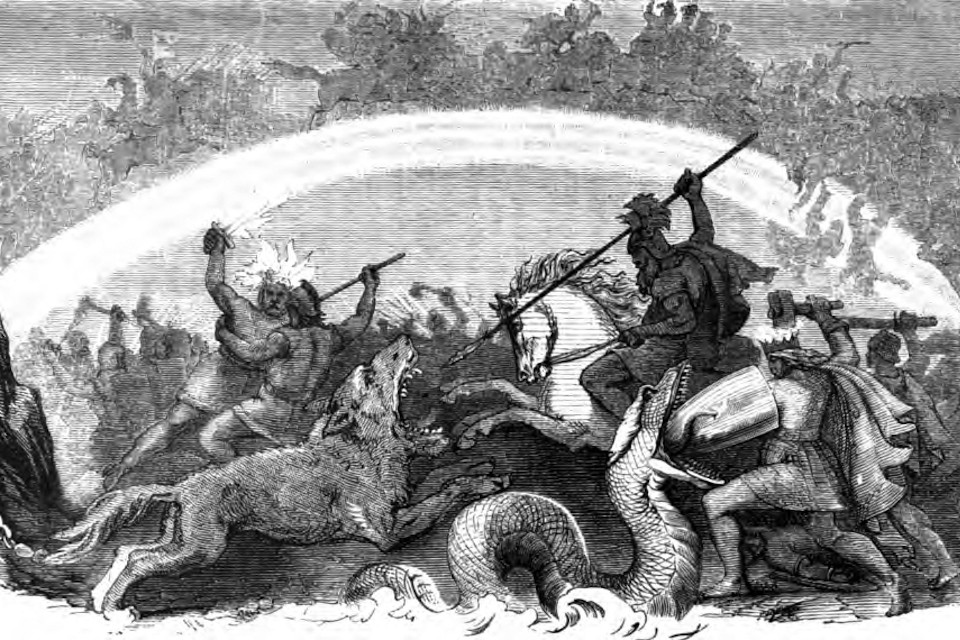




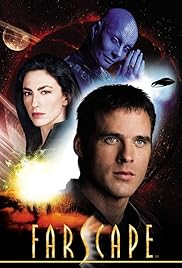
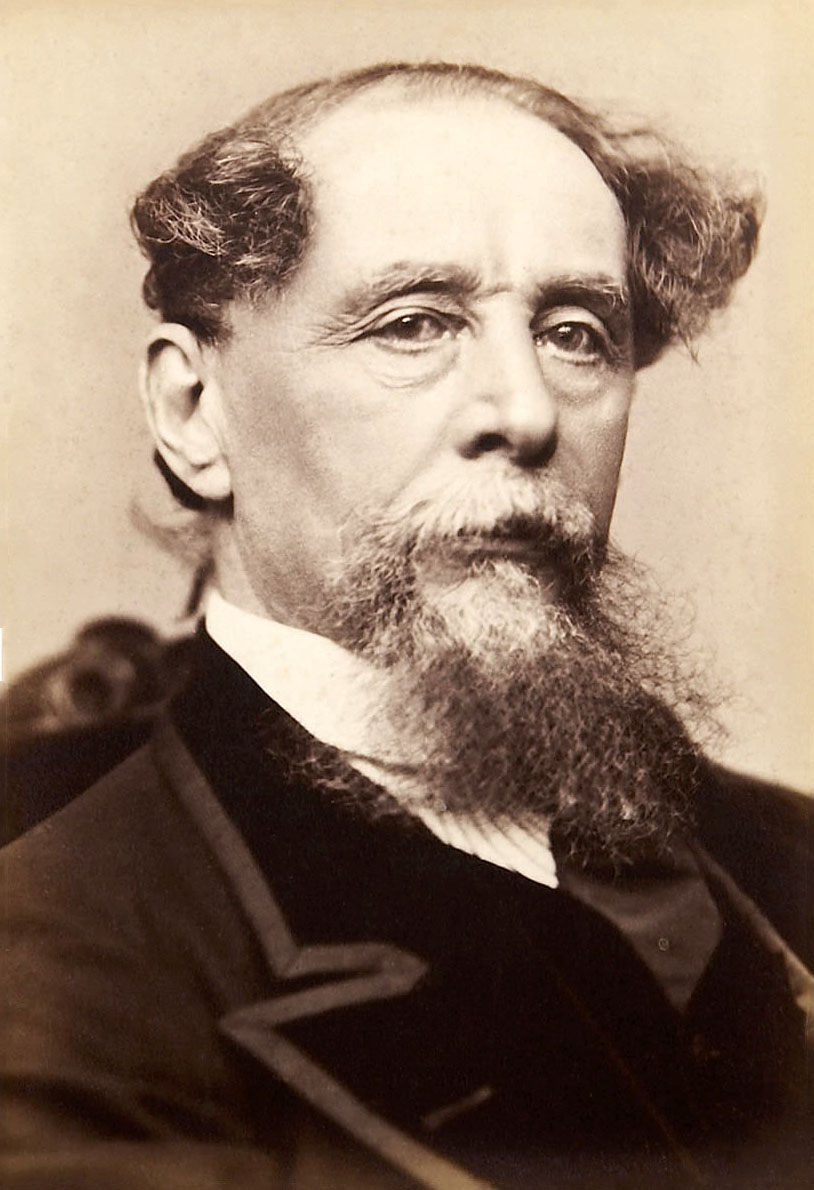



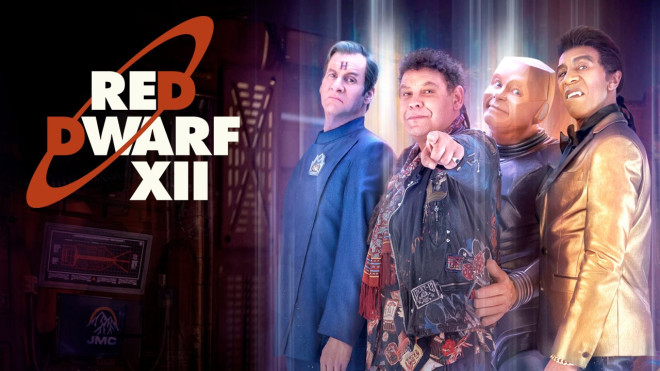
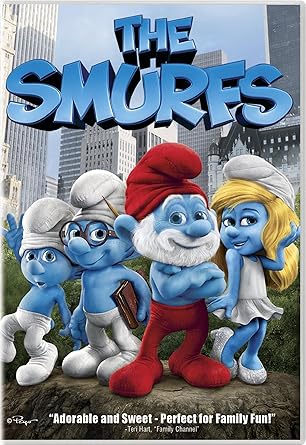
Comments
Post a Comment